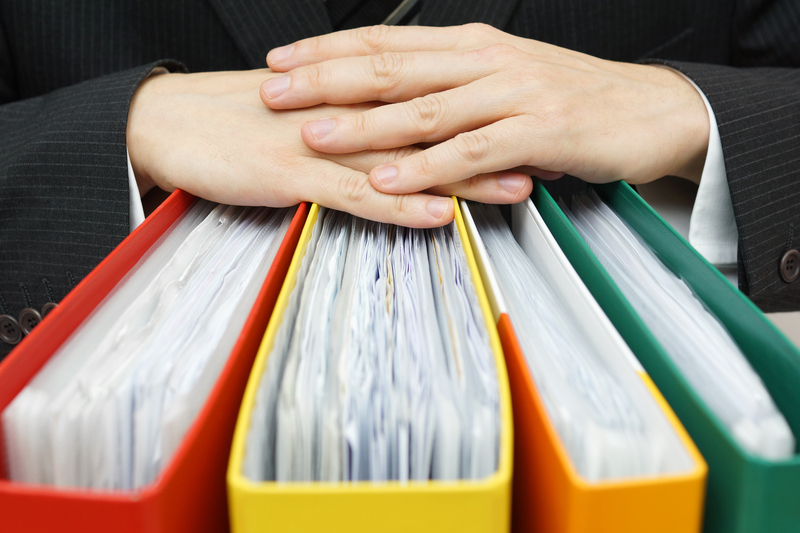Why Professional Help Is Essential When Moving a Piano
Moving a piano is a task that should never be underestimated. The importance of hiring professional movers for this job cannot be overstated. Whether you own a grand piano, an upright, or any other type of piano, these majestic instruments are highly valuable, extraordinarily heavy, and extremely delicate. In this comprehensive article, we will explore why professional help is crucial when moving a piano, the associated risks of a DIY approach, and how to choose the right experts for the job.

Understanding the Challenges of Piano Moving
A piano is not just a piece of furniture. It's a complex instrument with thousands of moving parts. The combination of weight, size, and fragile inner components makes piano relocation exceptionally challenging.
The Anatomy and Weight of Pianos
- Grand pianos can weigh anywhere from 500 to over 1,200 pounds (225-545 kg).
- Upright pianos usually weigh between 300 and 900 pounds (135-400 kg).
- String tension inside a piano equates to over 15 tons of force in larger models.
These factors make a piano unwieldy and highly sensitive to impact, vibration, and environmental changes. Attempting to move such an instrument without the right expertise can result in serious injuries, property damage, or irreparable harm to the piano itself.
Common Risks When Moving a Piano Without Professionals
Opting not to hire experienced piano movers often leads to:
- Back strains, sprains, or more severe injuries to individuals
- Scratched floors, dented walls, or damaged doorways
- Structural damage to internal piano components like the soundboard, keys, or pedals
- Poor tuning stability or irreversible mechanical issues in the piano
The Benefits of Hiring Professional Piano Movers
1. Expertise and Specialized Knowledge
Professional piano moving companies invest heavily in the training of their crews. Highly qualified movers know exactly how to dismantle, pad, and transport any piano model. They understand the specific needs of an upright compared to a baby grand or concert piano. Their experience minimizes the risk of harm to both the instrument and your property.
2. Proper Equipment and Techniques
Piano relocation requires specialized tools such as:
- Piano dollies and skid boards: Designed to handle extreme weight and maintain balance.
- Heavy-duty straps: Secure the piano safely during transport.
- Pads and blankets: Cushion the piano, protecting wood and finish.
- Ramps or lifts: Allow safe movement up or down stairs and into vehicles.
DIY attempts rarely have access to this equipment, increasing the likelihood of damage or injury.
3. Safety First--for People and Instrument
Pianos are cumbersome and unpredictable to move. Professionals employ precise techniques to avoid slips, tilts, or drops. Movers distribute the weight evenly, supporting critical parts and ensuring safe passage through narrow corridors, doorways, or stairs. This expertise drastically reduces the risk of accident or harm to you, your helpers, or your cherished instrument.
4. Insurance Coverage and Peace of Mind
One of the greatest advantages of hiring experienced piano movers is insurance. Reputable companies offer comprehensive coverage against accidents during transit. This means that if--on the rare occasion--damage does occur, you are protected financially. Doing it yourself provides no such guarantee.
5. Protecting the Value and Sound of Your Piano
Intricately engineered, pianos must maintain precise balance and alignment among their thousands of parts. Even a small bump can affect a piano's soundboard, strings, or keys, causing issues in tone and playability. Professional piano movers ensure your instrument remains in perfect condition, preserving its value and musical quality.
Why DIY Piano Moving Is Never Worth the Risk
Some homeowners might ask, "Can I save money by moving the piano myself?" Let's look at the real risks involved:
- Physical injuries: Lifting a piano is hazardous, especially on stairs, in tight spaces, or over uneven surfaces.
- Irreparable damage: Dropping a piano or even jostling it can cause expensive or permanent damage.
- Potential lawsuits: If a helper is injured at your property, you could be legally liable for medical expenses.
- Costly repairs: Fixing a broken piano, wall, or floor can far exceed the price of hiring professionals from the outset.
Expert piano movers exist for a reason: to ensure a seamless, safe process from start to finish. Rather than risking injury, loss, or added costs, it's wise to rely on the expertise of those who specialize in this type of relocation.
What to Look for When Hiring a Professional Piano Mover
Choosing the right piano moving company is essential. Here are some crucial criteria to consider:
1. Experience and Specialization
Make sure the company has a proven track record of moving pianos. Experience in handling specific brands, sizes, and models is a strong plus. A company that frequently moves grand pianos is more likely to understand their unique requirements.
2. Proper Licensing and Insurance
Only work with movers who are licensed and carry liability insurance. This protects you in case of property damage or other incidents.
3. Transparent Estimates and Contracts
A reputable piano moving service will offer a transparent, itemized quote. Avoid companies that provide vague pricing, as this can lead to hidden fees.
4. Customer Reviews and References
Read customer feedback and ask for references. Satisfied customers and a history of successfully moved pianos are the best indications of quality.
5. Equipment and Moving Methods
Ask what tools and techniques the company uses. Proper piano skids, dollies, and moving blankets are a must. The right team will also explain how they tackle specific challenges, such as stairs or tight spaces.
Step-by-Step: How Professional Piano Movers Work
For those still considering a DIY approach, understanding the expert process can highlight the complexity involved. Here's a general breakdown of how professional piano movers operate:
- Assessment: Movers assess the piano's size, weight, and the intricacies of the space (stairs, narrow halls, etc.).
- Disassembly (if needed): Legs, pedals, and music stands may be removed.
- Packing and Padding: Instruments are covered in thick blankets and secured with heavy-duty straps.
- Lifting and Placing on Dollies: Using specialized dollies and skids prevents damage to the instrument and flooring.
- Transport: Loaded with ramps or lifts, the piano is carefully moved into a truck designed for large and heavy items.
- Securing in Transit: The piano is strapped down to prevent shifting and vibration, preserving tuning and intonation.
- Final Placement and Reassembly: On arrival, movers reassemble and place the piano with precision, ready for tuning.
Only skilled piano movers can execute this process flawlessly, ensuring both safety and the instrument's integrity.

Frequently Asked Questions About Professional Piano Moving
How much does it cost to hire piano movers?
Costs vary depending on the piano's size, distance traveled, access challenges (such as stairs or narrow doors), and local rates. Typically, hiring experts to move a piano ranges from $200 to $1,200. These prices are far less than the potential cost of damage from a failed DIY move.
Do professional movers tune the piano after moving?
Most moving services do not include tuning, since pianos should acclimate for a few days after relocation. However, reputable movers can recommend quality piano technicians who can tune your instrument once it has settled.
Are all moving companies qualified to move pianos?
No! General movers may move furniture, but not all possess the expertise, equipment, or insurance to safely handle pianos. Always confirm specialization in piano relocation.
What information should I provide for an accurate quote?
- Type and model of your piano
- Dimensions and estimated weight
- Pickup and destination addresses
- Details of stairs, tight doorways, or other obstacles
Can professional piano movers relocate the instrument long-distance?
Yes. Many companies offer both local and long-distance piano moving services. Ensure your chosen mover has experience with cross-state or cross-country relocations if needed.
Summary: Why Professional Help Is the Best Choice for Piano Moving
In summary, moving a piano safely is a highly specialized process that requires training, experience, and dedicated equipment. The risks of DIY relocation--injury, costly damage, and stress--far outweigh the modest cost of hiring professionals. By investing in experienced piano movers, you ensure your priceless instrument continues to bring beauty and music to your home for generations to come.
- Expertise minimizes risk to people and property
- Specialized equipment ensures safety and efficiency
- Insurance coverage offers peace of mind
- Preserves the quality and value of your piano
Don't leave the fate of your piano to chance. Trust your investment and your music to professional piano movers--because your instrument deserves nothing less.



